2026-03-05 19:00:02
In both data science and financial trading, one of the most persistent challenges is striking the right balance between model complexity and predictive accuracy. In data science, overfitting occurs when a model learns not only the true underlying patterns in the training data but also the noise — leading to poor generalization on new, unseen data. Similarly, traders can fall prey to overfitting when their strategies become too finely tuned to past market conditions, failing to hold up in live trading. Understanding the cost of overfitting — and how to avoid it — can help traders build more robust, reliable strategies that perform well under a variety of market conditions.
In data science, overfitting emerges during the model-building process. A model that is too complex — such as one with too many parameters or one that attempts to capture every minute fluctuation in the training set — ends up memorizing the data rather than learning the underlying signal. When a model is overfit, it may look excellent on historical data, but its predictive performance collapses when applied to new datasets.
In financial trading, the concept is analogous. Traders often backtest strategies against historical price data, refining rules and tuning parameters to squeeze out higher returns. If the strategy is optimized excessively for the idiosyncrasies of past price movements, it may fail to adapt to future market changes. A strategy that performed exceptionally well on historical data might break down when even slight variations occur in market dynamics.
Overfitting is particularly costly in trading because financial markets are noisy, unpredictable, and influenced by innumerable factors beyond historical price action. Unlike some controlled environments where data patterns remain relatively stable over time, markets evolve in response to economic shifts, geopolitical events, and changes in trader behavior. A trading system that fits historical data too closely may interpret random fluctuations as meaningful signals — leading to erroneous decisions.
For example, imagine a trader designing a system based on specific chart patterns that seemed to correlate with price movements over a select period. Without careful validation, the strategy might mistake random coincidences for reliable signals. A similar issue occurs with reliance on complex indicators like the Xhmaster formula indicator. While advanced indicators can enrich strategy frameworks, overly tuning rules and thresholds to match historical performance raises the risk of overfitting, making the strategy brittle when conditions shift.
Data science offers structured approaches to mitigate overfitting, and those lessons translate well into trading.
In machine learning, datasets are often divided into training and testing subsets. A model is trained on the former and evaluated on the latter to assess generalization. Traders can adopt a similar mindset by separating data into in-sample and out-of-sample periods. A strategy might be developed using data from one timeframe, and then rigorously tested on another, to ensure it isn’t just overfitted to a specific period.
In data science, regularization techniques penalize overly complex models to prevent them from conforming too tightly to noise. Traders can apply an analogous principle by favoring simpler strategy rules over excessively complex combinations. A strategy based on a few high-probability candlestick patterns may outperform one bloated with convoluted entry and exit rules that only worked in past market conditions.
Cross-validation is a method where multiple training and testing splits are used to evaluate model performance more robustly. Traders can simulate this by testing their strategies across different markets, instruments, or timeframes. If a strategy works robustly across various conditions, it is less likely to be overfit. If weaknesses emerge in multiple scenarios, it’s a sign that the strategy may be too narrowly tailored.
Curve fitting refers to adjusting a model so that it adheres closely to historical data. Traders often inadvertently curve-fit when tweaking strategy parameters to achieve better backtest results. This can create a false sense of confidence. Rather than constantly adjusting parameters until the backtest looks perfect, traders should prioritize logical, theoretically justified rules, even if they produce modest but stable performance.
Finance data is inherently noisy. Random price fluctuations often obscure genuine signals. In data science, noise can lead models astray unless filtered or accounted for. Traders, too, must recognize that many apparent patterns may be artifacts of randomness. A robust approach requires distinguishing between random noise and meaningful trends.
One practical example lies in the use of chart patterns. Patterns such as head and shoulders, triangles, or flags may appear visually compelling, but not all of them carry predictive power. Without proper validation, relying on them could be akin to reading tea leaves — visually interesting but not consistently actionable.
Traders need to adopt probabilistic thinking. Just as a data scientist accepts that predictions are inherently uncertain, traders must treat every strategy signal as probabilistic rather than deterministic. A trade setup may indicate a higher likelihood of profit, but success is never guaranteed. This mindset reduces the psychological cost of drawdowns and reinforces risk management practices.
The cost of overfitting in trading can be severe, leading to strategies that look brilliant in hindsight but perform poorly in live markets. By borrowing lessons from data science — such as reserving validation data, simplifying design, avoiding curve fitting, and embracing probabilistic thinking — traders can build more resilient systems. Recognizing that financial markets are complex, noisy, and constantly shifting is the first step toward avoiding the pitfalls of overfitting. With thoughtful design and disciplined validation, traders can navigate markets with strategies that perform not just historically, but sustainably into the future.
\
:::tip This story was distributed as a release by Jon Stojan under HackerNoon’s Business Blogging Program.
:::
\
2026-03-05 18:00:22
:::info Astounding Stories of Super-Science October, 1994, by Astounding Stories is part of HackerNoon’s Book Blog Post series. You can jump to any chapter in this book here. The Picture of Dorian Gray - Chapter VIII
\ By Oscar Wilde
:::
\ It was long past noon when he awoke. His valet had crept several times on tiptoe into the room to see if he was stirring, and had wondered what made his young master sleep so late. Finally his bell sounded, and Victor came in softly with a cup of tea, and a pile of letters, on a small tray of old Sevres china, and drew back the olive-satin curtains, with their shimmering blue lining, that hung in front of the three tall windows.
“Monsieur has well slept this morning,” he said, smiling.
“What o’clock is it, Victor?” asked Dorian Gray drowsily.
“One hour and a quarter, Monsieur.”
How late it was! He sat up, and having sipped some tea, turned over his letters. One of them was from Lord Henry, and had been brought by hand that morning. He hesitated for a moment, and then put it aside. The others he opened listlessly. They contained the usual collection of cards, invitations to dinner, tickets for private views, programmes of charity concerts, and the like that are showered on fashionable young men every morning during the season. There was a rather heavy bill for a chased silver Louis-Quinze toilet-set that he had not yet had the courage to send on to his guardians, who were extremely old-fashioned people and did not realize that we live in an age when unnecessary things are our only necessities; and there were several very courteously worded communications from Jermyn Street money-lenders offering to advance any sum of money at a moment’s notice and at the most reasonable rates of interest.
After about ten minutes he got up, and throwing on an elaborate dressing-gown of silk-embroidered cashmere wool, passed into the onyx-paved bathroom. The cool water refreshed him after his long sleep. He seemed to have forgotten all that he had gone through. A dim sense of having taken part in some strange tragedy came to him once or twice, but there was the unreality of a dream about it.
As soon as he was dressed, he went into the library and sat down to a light French breakfast that had been laid out for him on a small round table close to the open window. It was an exquisite day. The warm air seemed laden with spices. A bee flew in and buzzed round the blue-dragon bowl that, filled with sulphur-yellow roses, stood before him. He felt perfectly happy.
Suddenly his eye fell on the screen that he had placed in front of the portrait, and he started.
“Too cold for Monsieur?” asked his valet, putting an omelette on the table. “I shut the window?”
Dorian shook his head. “I am not cold,” he murmured.
Was it all true? Had the portrait really changed? Or had it been simply his own imagination that had made him see a look of evil where there had been a look of joy? Surely a painted canvas could not alter? The thing was absurd. It would serve as a tale to tell Basil some day. It would make him smile.
And, yet, how vivid was his recollection of the whole thing! First in the dim twilight, and then in the bright dawn, he had seen the touch of cruelty round the warped lips. He almost dreaded his valet leaving the room. He knew that when he was alone he would have to examine the portrait. He was afraid of certainty. When the coffee and cigarettes had been brought and the man turned to go, he felt a wild desire to tell him to remain. As the door was closing behind him, he called him back. The man stood waiting for his orders. Dorian looked at him for a moment. “I am not at home to any one, Victor,” he said with a sigh. The man bowed and retired.
Then he rose from the table, lit a cigarette, and flung himself down on a luxuriously cushioned couch that stood facing the screen. The screen was an old one, of gilt Spanish leather, stamped and wrought with a rather florid Louis-Quatorze pattern. He scanned it curiously, wondering if ever before it had concealed the secret of a man’s life.
Should he move it aside, after all? Why not let it stay there? What was the use of knowing? If the thing was true, it was terrible. If it was not true, why trouble about it? But what if, by some fate or deadlier chance, eyes other than his spied behind and saw the horrible change? What should he do if Basil Hallward came and asked to look at his own picture? Basil would be sure to do that. No; the thing had to be examined, and at once. Anything would be better than this dreadful state of doubt.
He got up and locked both doors. At least he would be alone when he looked upon the mask of his shame. Then he drew the screen aside and saw himself face to face. It was perfectly true. The portrait had altered.
As he often remembered afterwards, and always with no small wonder, he found himself at first gazing at the portrait with a feeling of almost scientific interest. That such a change should have taken place was incredible to him. And yet it was a fact. Was there some subtle affinity between the chemical atoms that shaped themselves into form and colour on the canvas and the soul that was within him? Could it be that what that soul thought, they realized?—that what it dreamed, they made true? Or was there some other, more terrible reason? He shuddered, and felt afraid, and, going back to the couch, lay there, gazing at the picture in sickened horror.
One thing, however, he felt that it had done for him. It had made him conscious how unjust, how cruel, he had been to Sibyl Vane. It was not too late to make reparation for that. She could still be his wife. His unreal and selfish love would yield to some higher influence, would be transformed into some nobler passion, and the portrait that Basil Hallward had painted of him would be a guide to him through life, would be to him what holiness is to some, and conscience to others, and the fear of God to us all. There were opiates for remorse, drugs that could lull the moral sense to sleep. But here was a visible symbol of the degradation of sin. Here was an ever-present sign of the ruin men brought upon their souls.
Three o’clock struck, and four, and the half-hour rang its double chime, but Dorian Gray did not stir. He was trying to gather up the scarlet threads of life and to weave them into a pattern; to find his way through the sanguine labyrinth of passion through which he was wandering. He did not know what to do, or what to think. Finally, he went over to the table and wrote a passionate letter to the girl he had loved, imploring her forgiveness and accusing himself of madness. He covered page after page with wild words of sorrow and wilder words of pain. There is a luxury in self-reproach. When we blame ourselves, we feel that no one else has a right to blame us. It is the confession, not the priest, that gives us absolution. When Dorian had finished the letter, he felt that he had been forgiven.
Suddenly there came a knock to the door, and he heard Lord Henry’s voice outside. “My dear boy, I must see you. Let me in at once. I can’t bear your shutting yourself up like this.”
He made no answer at first, but remained quite still. The knocking still continued and grew louder. Yes, it was better to let Lord Henry in, and to explain to him the new life he was going to lead, to quarrel with him if it became necessary to quarrel, to part if parting was inevitable. He jumped up, drew the screen hastily across the picture, and unlocked the door.
“I am so sorry for it all, Dorian,” said Lord Henry as he entered. “But you must not think too much about it.”
“Do you mean about Sibyl Vane?” asked the lad.
“Yes, of course,” answered Lord Henry, sinking into a chair and slowly pulling off his yellow gloves. “It is dreadful, from one point of view, but it was not your fault. Tell me, did you go behind and see her, after the play was over?”
“Yes.”
“I felt sure you had. Did you make a scene with her?”
“I was brutal, Harry—perfectly brutal. But it is all right now. I am not sorry for anything that has happened. It has taught me to know myself better.”
“Ah, Dorian, I am so glad you take it in that way! I was afraid I would find you plunged in remorse and tearing that nice curly hair of yours.”
“I have got through all that,” said Dorian, shaking his head and smiling. “I am perfectly happy now. I know what conscience is, to begin with. It is not what you told me it was. It is the divinest thing in us. Don’t sneer at it, Harry, any more—at least not before me. I want to be good. I can’t bear the idea of my soul being hideous.”
“A very charming artistic basis for ethics, Dorian! I congratulate you on it. But how are you going to begin?”
“By marrying Sibyl Vane.”
“Marrying Sibyl Vane!” cried Lord Henry, standing up and looking at him in perplexed amazement. “But, my dear Dorian—”
“Yes, Harry, I know what you are going to say. Something dreadful about marriage. Don’t say it. Don’t ever say things of that kind to me again. Two days ago I asked Sibyl to marry me. I am not going to break my word to her. She is to be my wife.”
“Your wife! Dorian! … Didn’t you get my letter? I wrote to you this morning, and sent the note down by my own man.”
“Your letter? Oh, yes, I remember. I have not read it yet, Harry. I was afraid there might be something in it that I wouldn’t like. You cut life to pieces with your epigrams.”
“You know nothing then?”
“What do you mean?”
Lord Henry walked across the room, and sitting down by Dorian Gray, took both his hands in his own and held them tightly. “Dorian,” he said, “my letter—don’t be frightened—was to tell you that Sibyl Vane is dead.”
A cry of pain broke from the lad’s lips, and he leaped to his feet, tearing his hands away from Lord Henry’s grasp. “Dead! Sibyl dead! It is not true! It is a horrible lie! How dare you say it?”
“It is quite true, Dorian,” said Lord Henry, gravely. “It is in all the morning papers. I wrote down to you to ask you not to see any one till I came. There will have to be an inquest, of course, and you must not be mixed up in it. Things like that make a man fashionable in Paris. But in London people are so prejudiced. Here, one should never make one’s début with a scandal. One should reserve that to give an interest to one’s old age. I suppose they don’t know your name at the theatre? If they don’t, it is all right. Did any one see you going round to her room? That is an important point.”
Dorian did not answer for a few moments. He was dazed with horror. Finally he stammered, in a stifled voice, “Harry, did you say an inquest? What did you mean by that? Did Sibyl—? Oh, Harry, I can’t bear it! But be quick. Tell me everything at once.”
“I have no doubt it was not an accident, Dorian, though it must be put in that way to the public. It seems that as she was leaving the theatre with her mother, about half-past twelve or so, she said she had forgotten something upstairs. They waited some time for her, but she did not come down again. They ultimately found her lying dead on the floor of her dressing-room. She had swallowed something by mistake, some dreadful thing they use at theatres. I don’t know what it was, but it had either prussic acid or white lead in it. I should fancy it was prussic acid, as she seems to have died instantaneously.”
“Harry, Harry, it is terrible!” cried the lad.
“Yes; it is very tragic, of course, but you must not get yourself mixed up in it. I see by The Standard that she was seventeen. I should have thought she was almost younger than that. She looked such a child, and seemed to know so little about acting. Dorian, you mustn’t let this thing get on your nerves. You must come and dine with me, and afterwards we will look in at the opera. It is a Patti night, and everybody will be there. You can come to my sister’s box. She has got some smart women with her.”
“So I have murdered Sibyl Vane,” said Dorian Gray, half to himself, “murdered her as surely as if I had cut her little throat with a knife. Yet the roses are not less lovely for all that. The birds sing just as happily in my garden. And to-night I am to dine with you, and then go on to the opera, and sup somewhere, I suppose, afterwards. How extraordinarily dramatic life is! If I had read all this in a book, Harry, I think I would have wept over it. Somehow, now that it has happened actually, and to me, it seems far too wonderful for tears. Here is the first passionate love-letter I have ever written in my life. Strange, that my first passionate love-letter should have been addressed to a dead girl. Can they feel, I wonder, those white silent people we call the dead? Sibyl! Can she feel, or know, or listen? Oh, Harry, how I loved her once! It seems years ago to me now. She was everything to me. Then came that dreadful night—was it really only last night?—when she played so badly, and my heart almost broke. She explained it all to me. It was terribly pathetic. But I was not moved a bit. I thought her shallow. Suddenly something happened that made me afraid. I can’t tell you what it was, but it was terrible. I said I would go back to her. I felt I had done wrong. And now she is dead. My God! My God! Harry, what shall I do? You don’t know the danger I am in, and there is nothing to keep me straight. She would have done that for me. She had no right to kill herself. It was selfish of her.”
“My dear Dorian,” answered Lord Henry, taking a cigarette from his case and producing a gold-latten matchbox, “the only way a woman can ever reform a man is by boring him so completely that he loses all possible interest in life. If you had married this girl, you would have been wretched. Of course, you would have treated her kindly. One can always be kind to people about whom one cares nothing. But she would have soon found out that you were absolutely indifferent to her. And when a woman finds that out about her husband, she either becomes dreadfully dowdy, or wears very smart bonnets that some other woman’s husband has to pay for. I say nothing about the social mistake, which would have been abject—which, of course, I would not have allowed—but I assure you that in any case the whole thing would have been an absolute failure.”
“I suppose it would,” muttered the lad, walking up and down the room and looking horribly pale. “But I thought it was my duty. It is not my fault that this terrible tragedy has prevented my doing what was right. I remember your saying once that there is a fatality about good resolutions—that they are always made too late. Mine certainly were.”
“Good resolutions are useless attempts to interfere with scientific laws. Their origin is pure vanity. Their result is absolutely nil. They give us, now and then, some of those luxurious sterile emotions that have a certain charm for the weak. That is all that can be said for them. They are simply cheques that men draw on a bank where they have no account.”
“Harry,” cried Dorian Gray, coming over and sitting down beside him, “why is it that I cannot feel this tragedy as much as I want to? I don’t think I am heartless. Do you?”
“You have done too many foolish things during the last fortnight to be entitled to give yourself that name, Dorian,” answered Lord Henry with his sweet melancholy smile.
The lad frowned. “I don’t like that explanation, Harry,” he rejoined, “but I am glad you don’t think I am heartless. I am nothing of the kind. I know I am not. And yet I must admit that this thing that has happened does not affect me as it should. It seems to me to be simply like a wonderful ending to a wonderful play. It has all the terrible beauty of a Greek tragedy, a tragedy in which I took a great part, but by which I have not been wounded.”
“It is an interesting question,” said Lord Henry, who found an exquisite pleasure in playing on the lad’s unconscious egotism, “an extremely interesting question. I fancy that the true explanation is this: It often happens that the real tragedies of life occur in such an inartistic manner that they hurt us by their crude violence, their absolute incoherence, their absurd want of meaning, their entire lack of style. They affect us just as vulgarity affects us. They give us an impression of sheer brute force, and we revolt against that. Sometimes, however, a tragedy that possesses artistic elements of beauty crosses our lives. If these elements of beauty are real, the whole thing simply appeals to our sense of dramatic effect. Suddenly we find that we are no longer the actors, but the spectators of the play. Or rather we are both. We watch ourselves, and the mere wonder of the spectacle enthralls us. In the present case, what is it that has really happened? Some one has killed herself for love of you. I wish that I had ever had such an experience. It would have made me in love with love for the rest of my life. The people who have adored me—there have not been very many, but there have been some—have always insisted on living on, long after I had ceased to care for them, or they to care for me. They have become stout and tedious, and when I meet them, they go in at once for reminiscences. That awful memory of woman! What a fearful thing it is! And what an utter intellectual stagnation it reveals! One should absorb the colour of life, but one should never remember its details. Details are always vulgar.”
“I must sow poppies in my garden,” sighed Dorian.
“There is no necessity,” rejoined his companion. “Life has always poppies in her hands. Of course, now and then things linger. I once wore nothing but violets all through one season, as a form of artistic mourning for a romance that would not die. Ultimately, however, it did die. I forget what killed it. I think it was her proposing to sacrifice the whole world for me. That is always a dreadful moment. It fills one with the terror of eternity. Well—would you believe it?—a week ago, at Lady Hampshire’s, I found myself seated at dinner next the lady in question, and she insisted on going over the whole thing again, and digging up the past, and raking up the future. I had buried my romance in a bed of asphodel. She dragged it out again and assured me that I had spoiled her life. I am bound to state that she ate an enormous dinner, so I did not feel any anxiety. But what a lack of taste she showed! The one charm of the past is that it is the past. But women never know when the curtain has fallen. They always want a sixth act, and as soon as the interest of the play is entirely over, they propose to continue it. If they were allowed their own way, every comedy would have a tragic ending, and every tragedy would culminate in a farce. They are charmingly artificial, but they have no sense of art. You are more fortunate than I am. I assure you, Dorian, that not one of the women I have known would have done for me what Sibyl Vane did for you. Ordinary women always console themselves. Some of them do it by going in for sentimental colours. Never trust a woman who wears mauve, whatever her age may be, or a woman over thirty-five who is fond of pink ribbons. It always means that they have a history. Others find a great consolation in suddenly discovering the good qualities of their husbands. They flaunt their conjugal felicity in one’s face, as if it were the most fascinating of sins. Religion consoles some. Its mysteries have all the charm of a flirtation, a woman once told me, and I can quite understand it. Besides, nothing makes one so vain as being told that one is a sinner. Conscience makes egotists of us all. Yes; there is really no end to the consolations that women find in modern life. Indeed, I have not mentioned the most important one.”
“What is that, Harry?” said the lad listlessly.
“Oh, the obvious consolation. Taking some one else’s admirer when one loses one’s own. In good society that always whitewashes a woman. But really, Dorian, how different Sibyl Vane must have been from all the women one meets! There is something to me quite beautiful about her death. I am glad I am living in a century when such wonders happen. They make one believe in the reality of the things we all play with, such as romance, passion, and love.”
“I was terribly cruel to her. You forget that.”
“I am afraid that women appreciate cruelty, downright cruelty, more than anything else. They have wonderfully primitive instincts. We have emancipated them, but they remain slaves looking for their masters, all the same. They love being dominated. I am sure you were splendid. I have never seen you really and absolutely angry, but I can fancy how delightful you looked. And, after all, you said something to me the day before yesterday that seemed to me at the time to be merely fanciful, but that I see now was absolutely true, and it holds the key to everything.”
“What was that, Harry?”
“You said to me that Sibyl Vane represented to you all the heroines of romance—that she was Desdemona one night, and Ophelia the other; that if she died as Juliet, she came to life as Imogen.”
“She will never come to life again now,” muttered the lad, burying his face in his hands.
“No, she will never come to life. She has played her last part. But you must think of that lonely death in the tawdry dressing-room simply as a strange lurid fragment from some Jacobean tragedy, as a wonderful scene from Webster, or Ford, or Cyril Tourneur. The girl never really lived, and so she has never really died. To you at least she was always a dream, a phantom that flitted through Shakespeare’s plays and left them lovelier for its presence, a reed through which Shakespeare’s music sounded richer and more full of joy. The moment she touched actual life, she marred it, and it marred her, and so she passed away. Mourn for Ophelia, if you like. Put ashes on your head because Cordelia was strangled. Cry out against Heaven because the daughter of Brabantio died. But don’t waste your tears over Sibyl Vane. She was less real than they are.”
There was a silence. The evening darkened in the room. Noiselessly, and with silver feet, the shadows crept in from the garden. The colours faded wearily out of things.
After some time Dorian Gray looked up. “You have explained me to myself, Harry,” he murmured with something of a sigh of relief. “I felt all that you have said, but somehow I was afraid of it, and I could not express it to myself. How well you know me! But we will not talk again of what has happened. It has been a marvellous experience. That is all. I wonder if life has still in store for me anything as marvellous.”
“Life has everything in store for you, Dorian. There is nothing that you, with your extraordinary good looks, will not be able to do.”
“But suppose, Harry, I became haggard, and old, and wrinkled? What then?”
“Ah, then,” said Lord Henry, rising to go, “then, my dear Dorian, you would have to fight for your victories. As it is, they are brought to you. No, you must keep your good looks. We live in an age that reads too much to be wise, and that thinks too much to be beautiful. We cannot spare you. And now you had better dress and drive down to the club. We are rather late, as it is.”
“I think I shall join you at the opera, Harry. I feel too tired to eat anything. What is the number of your sister’s box?”
“Twenty-seven, I believe. It is on the grand tier. You will see her name on the door. But I am sorry you won’t come and dine.”
“I don’t feel up to it,” said Dorian listlessly. “But I am awfully obliged to you for all that you have said to me. You are certainly my best friend. No one has ever understood me as you have.”
“We are only at the beginning of our friendship, Dorian,” answered Lord Henry, shaking him by the hand. “Good-bye. I shall see you before nine-thirty, I hope. Remember, Patti is singing.”
As he closed the door behind him, Dorian Gray touched the bell, and in a few minutes Victor appeared with the lamps and drew the blinds down. He waited impatiently for him to go. The man seemed to take an interminable time over everything.
As soon as he had left, he rushed to the screen and drew it back. No; there was no further change in the picture. It had received the news of Sibyl Vane’s death before he had known of it himself. It was conscious of the events of life as they occurred. The vicious cruelty that marred the fine lines of the mouth had, no doubt, appeared at the very moment that the girl had drunk the poison, whatever it was. Or was it indifferent to results? Did it merely take cognizance of what passed within the soul? He wondered, and hoped that some day he would see the change taking place before his very eyes, shuddering as he hoped it.
Poor Sibyl! What a romance it had all been! She had often mimicked death on the stage. Then Death himself had touched her and taken her with him. How had she played that dreadful last scene? Had she cursed him, as she died? No; she had died for love of him, and love would always be a sacrament to him now. She had atoned for everything by the sacrifice she had made of her life. He would not think any more of what she had made him go through, on that horrible night at the theatre. When he thought of her, it would be as a wonderful tragic figure sent on to the world’s stage to show the supreme reality of love. A wonderful tragic figure? Tears came to his eyes as he remembered her childlike look, and winsome fanciful ways, and shy tremulous grace. He brushed them away hastily and looked again at the picture.
He felt that the time had really come for making his choice. Or had his choice already been made? Yes, life had decided that for him—life, and his own infinite curiosity about life. Eternal youth, infinite passion, pleasures subtle and secret, wild joys and wilder sins—he was to have all these things. The portrait was to bear the burden of his shame: that was all.
A feeling of pain crept over him as he thought of the desecration that was in store for the fair face on the canvas. Once, in boyish mockery of Narcissus, he had kissed, or feigned to kiss, those painted lips that now smiled so cruelly at him. Morning after morning he had sat before the portrait wondering at its beauty, almost enamoured of it, as it seemed to him at times. Was it to alter now with every mood to which he yielded? Was it to become a monstrous and loathsome thing, to be hidden away in a locked room, to be shut out from the sunlight that had so often touched to brighter gold the waving wonder of its hair? The pity of it! the pity of it!
For a moment, he thought of praying that the horrible sympathy that existed between him and the picture might cease. It had changed in answer to a prayer; perhaps in answer to a prayer it might remain unchanged. And yet, who, that knew anything about life, would surrender the chance of remaining always young, however fantastic that chance might be, or with what fateful consequences it might be fraught? Besides, was it really under his control? Had it indeed been prayer that had produced the substitution? Might there not be some curious scientific reason for it all? If thought could exercise its influence upon a living organism, might not thought exercise an influence upon dead and inorganic things? Nay, without thought or conscious desire, might not things external to ourselves vibrate in unison with our moods and passions, atom calling to atom in secret love or strange affinity? But the reason was of no importance. He would never again tempt by a prayer any terrible power. If the picture was to alter, it was to alter. That was all. Why inquire too closely into it?
For there would be a real pleasure in watching it. He would be able to follow his mind into its secret places. This portrait would be to him the most magical of mirrors. As it had revealed to him his own body, so it would reveal to him his own soul. And when winter came upon it, he would still be standing where spring trembles on the verge of summer. When the blood crept from its face, and left behind a pallid mask of chalk with leaden eyes, he would keep the glamour of boyhood. Not one blossom of his loveliness would ever fade. Not one pulse of his life would ever weaken. Like the gods of the Greeks, he would be strong, and fleet, and joyous. What did it matter what happened to the coloured image on the canvas? He would be safe. That was everything.
He drew the screen back into its former place in front of the picture, smiling as he did so, and passed into his bedroom, where his valet was already waiting for him. An hour later he was at the opera, and Lord Henry was leaning over his chair.
\
:::info About HackerNoon Book Series: We bring you the most important technical, scientific, and insightful public domain books.
This book is part of the public domain. Astounding Stories. (2009). ASTOUNDING STORIES OF SUPER-SCIENCE, OCTOBER 1994. USA. Project Gutenberg. Release date: October 1, 1994, from https://www.gutenberg.org/cache/epub/174/pg174-images.html
This eBook is for the use of anyone anywhere at no cost and with almost no restrictions whatsoever. You may copy it, give it away or re-use it under the terms of the Project Gutenberg License included with this eBook or online at www.gutenberg.org, located at https://www.gutenberg.org/policy/license.html.
:::
\
2026-03-05 17:00:03
:::info Astounding Stories of Super-Science October, 1994, by Astounding Stories is part of HackerNoon’s Book Blog Post series. You can jump to any chapter in this book here. The Picture of Dorian Gray - Chapter VII
\ By Oscar Wilde
:::
\ For some reason or other, the house was crowded that night, and the fat Jew manager who met them at the door was beaming from ear to ear with an oily tremulous smile. He escorted them to their box with a sort of pompous humility, waving his fat jewelled hands and talking at the top of his voice. Dorian Gray loathed him more than ever. He felt as if he had come to look for Miranda and had been met by Caliban. Lord Henry, upon the other hand, rather liked him. At least he declared he did, and insisted on shaking him by the hand and assuring him that he was proud to meet a man who had discovered a real genius and gone bankrupt over a poet. Hallward amused himself with watching the faces in the pit. The heat was terribly oppressive, and the huge sunlight flamed like a monstrous dahlia with petals of yellow fire. The youths in the gallery had taken off their coats and waistcoats and hung them over the side. They talked to each other across the theatre and shared their oranges with the tawdry girls who sat beside them. Some women were laughing in the pit. Their voices were horribly shrill and discordant. The sound of the popping of corks came from the bar.
“What a place to find one’s divinity in!” said Lord Henry.
“Yes!” answered Dorian Gray. “It was here I found her, and she is divine beyond all living things. When she acts, you will forget everything. These common rough people, with their coarse faces and brutal gestures, become quite different when she is on the stage. They sit silently and watch her. They weep and laugh as she wills them to do. She makes them as responsive as a violin. She spiritualizes them, and one feels that they are of the same flesh and blood as one’s self.”
“The same flesh and blood as one’s self! Oh, I hope not!” exclaimed Lord Henry, who was scanning the occupants of the gallery through his opera-glass.
“Don’t pay any attention to him, Dorian,” said the painter. “I understand what you mean, and I believe in this girl. Any one you love must be marvellous, and any girl who has the effect you describe must be fine and noble. To spiritualize one’s age—that is something worth doing. If this girl can give a soul to those who have lived without one, if she can create the sense of beauty in people whose lives have been sordid and ugly, if she can strip them of their selfishness and lend them tears for sorrows that are not their own, she is worthy of all your adoration, worthy of the adoration of the world. This marriage is quite right. I did not think so at first, but I admit it now. The gods made Sibyl Vane for you. Without her you would have been incomplete.”
“Thanks, Basil,” answered Dorian Gray, pressing his hand. “I knew that you would understand me. Harry is so cynical, he terrifies me. But here is the orchestra. It is quite dreadful, but it only lasts for about five minutes. Then the curtain rises, and you will see the girl to whom I am going to give all my life, to whom I have given everything that is good in me.”
A quarter of an hour afterwards, amidst an extraordinary turmoil of applause, Sibyl Vane stepped on to the stage. Yes, she was certainly lovely to look at—one of the loveliest creatures, Lord Henry thought, that he had ever seen. There was something of the fawn in her shy grace and startled eyes. A faint blush, like the shadow of a rose in a mirror of silver, came to her cheeks as she glanced at the crowded enthusiastic house. She stepped back a few paces and her lips seemed to tremble. Basil Hallward leaped to his feet and began to applaud. Motionless, and as one in a dream, sat Dorian Gray, gazing at her. Lord Henry peered through his glasses, murmuring, “Charming! charming!”
The scene was the hall of Capulet’s house, and Romeo in his pilgrim’s dress had entered with Mercutio and his other friends. The band, such as it was, struck up a few bars of music, and the dance began. Through the crowd of ungainly, shabbily dressed actors, Sibyl Vane moved like a creature from a finer world. Her body swayed, while she danced, as a plant sways in the water. The curves of her throat were the curves of a white lily. Her hands seemed to be made of cool ivory.
Yet she was curiously listless. She showed no sign of joy when her eyes rested on Romeo. The few words she had to speak—
Good pilgrim, you do wrong your hand too much, \n Which mannerly devotion shows in this; \n For saints have hands that pilgrims’ hands do touch, \n And palm to palm is holy palmers’ kiss—
with the brief dialogue that follows, were spoken in a thoroughly artificial manner. The voice was exquisite, but from the point of view of tone it was absolutely false. It was wrong in colour. It took away all the life from the verse. It made the passion unreal.
Dorian Gray grew pale as he watched her. He was puzzled and anxious. Neither of his friends dared to say anything to him. She seemed to them to be absolutely incompetent. They were horribly disappointed.
Yet they felt that the true test of any Juliet is the balcony scene of the second act. They waited for that. If she failed there, there was nothing in her.
She looked charming as she came out in the moonlight. That could not be denied. But the staginess of her acting was unbearable, and grew worse as she went on. Her gestures became absurdly artificial. She overemphasized everything that she had to say. The beautiful passage—
Thou knowest the mask of night is on my face, \n Else would a maiden blush bepaint my cheek \n For that which thou hast heard me speak to-night—
was declaimed with the painful precision of a schoolgirl who has been taught to recite by some second-rate professor of elocution. When she leaned over the balcony and came to those wonderful lines—
Although I joy in thee, \n I have no joy of this contract to-night: \n It is too rash, too unadvised, too sudden; \n Too like the lightning, which doth cease to be \n Ere one can say, “It lightens.” Sweet, good-night! \n This bud of love by summer’s ripening breath \n May prove a beauteous flower when next we meet—
she spoke the words as though they conveyed no meaning to her. It was not nervousness. Indeed, so far from being nervous, she was absolutely self-contained. It was simply bad art. She was a complete failure.
Even the common uneducated audience of the pit and gallery lost their interest in the play. They got restless, and began to talk loudly and to whistle. The Jew manager, who was standing at the back of the dress-circle, stamped and swore with rage. The only person unmoved was the girl herself.
When the second act was over, there came a storm of hisses, and Lord Henry got up from his chair and put on his coat. “She is quite beautiful, Dorian,” he said, “but she can’t act. Let us go.”
“I am going to see the play through,” answered the lad, in a hard bitter voice. “I am awfully sorry that I have made you waste an evening, Harry. I apologize to you both.”
“My dear Dorian, I should think Miss Vane was ill,” interrupted Hallward. “We will come some other night.”
“I wish she were ill,” he rejoined. “But she seems to me to be simply callous and cold. She has entirely altered. Last night she was a great artist. This evening she is merely a commonplace mediocre actress.”
“Don’t talk like that about any one you love, Dorian. Love is a more wonderful thing than art.”
“They are both simply forms of imitation,” remarked Lord Henry. “But do let us go. Dorian, you must not stay here any longer. It is not good for one’s morals to see bad acting. Besides, I don’t suppose you will want your wife to act, so what does it matter if she plays Juliet like a wooden doll? She is very lovely, and if she knows as little about life as she does about acting, she will be a delightful experience. There are only two kinds of people who are really fascinating—people who know absolutely everything, and people who know absolutely nothing. Good heavens, my dear boy, don’t look so tragic! The secret of remaining young is never to have an emotion that is unbecoming. Come to the club with Basil and myself. We will smoke cigarettes and drink to the beauty of Sibyl Vane. She is beautiful. What more can you want?”
“Go away, Harry,” cried the lad. “I want to be alone. Basil, you must go. Ah! can’t you see that my heart is breaking?” The hot tears came to his eyes. His lips trembled, and rushing to the back of the box, he leaned up against the wall, hiding his face in his hands.
“Let us go, Basil,” said Lord Henry with a strange tenderness in his voice, and the two young men passed out together.
A few moments afterwards the footlights flared up and the curtain rose on the third act. Dorian Gray went back to his seat. He looked pale, and proud, and indifferent. The play dragged on, and seemed interminable. Half of the audience went out, tramping in heavy boots and laughing. The whole thing was a fiasco. The last act was played to almost empty benches. The curtain went down on a titter and some groans.
As soon as it was over, Dorian Gray rushed behind the scenes into the greenroom. The girl was standing there alone, with a look of triumph on her face. Her eyes were lit with an exquisite fire. There was a radiance about her. Her parted lips were smiling over some secret of their own.
When he entered, she looked at him, and an expression of infinite joy came over her. “How badly I acted to-night, Dorian!” she cried.
“Horribly!” he answered, gazing at her in amazement. “Horribly! It was dreadful. Are you ill? You have no idea what it was. You have no idea what I suffered.”
The girl smiled. “Dorian,” she answered, lingering over his name with long-drawn music in her voice, as though it were sweeter than honey to the red petals of her mouth. “Dorian, you should have understood. But you understand now, don’t you?”
“Understand what?” he asked, angrily.
“Why I was so bad to-night. Why I shall always be bad. Why I shall never act well again.”
He shrugged his shoulders. “You are ill, I suppose. When you are ill you shouldn’t act. You make yourself ridiculous. My friends were bored. I was bored.”
She seemed not to listen to him. She was transfigured with joy. An ecstasy of happiness dominated her.
“Dorian, Dorian,” she cried, “before I knew you, acting was the one reality of my life. It was only in the theatre that I lived. I thought that it was all true. I was Rosalind one night and Portia the other. The joy of Beatrice was my joy, and the sorrows of Cordelia were mine also. I believed in everything. The common people who acted with me seemed to me to be godlike. The painted scenes were my world. I knew nothing but shadows, and I thought them real. You came—oh, my beautiful love!—and you freed my soul from prison. You taught me what reality really is. To-night, for the first time in my life, I saw through the hollowness, the sham, the silliness of the empty pageant in which I had always played. To-night, for the first time, I became conscious that the Romeo was hideous, and old, and painted, that the moonlight in the orchard was false, that the scenery was vulgar, and that the words I had to speak were unreal, were not my words, were not what I wanted to say. You had brought me something higher, something of which all art is but a reflection. You had made me understand what love really is. My love! My love! Prince Charming! Prince of life! I have grown sick of shadows. You are more to me than all art can ever be. What have I to do with the puppets of a play? When I came on to-night, I could not understand how it was that everything had gone from me. I thought that I was going to be wonderful. I found that I could do nothing. Suddenly it dawned on my soul what it all meant. The knowledge was exquisite to me. I heard them hissing, and I smiled. What could they know of love such as ours? Take me away, Dorian—take me away with you, where we can be quite alone. I hate the stage. I might mimic a passion that I do not feel, but I cannot mimic one that burns me like fire. Oh, Dorian, Dorian, you understand now what it signifies? Even if I could do it, it would be profanation for me to play at being in love. You have made me see that.”
He flung himself down on the sofa and turned away his face. “You have killed my love,” he muttered.
She looked at him in wonder and laughed. He made no answer. She came across to him, and with her little fingers stroked his hair. She knelt down and pressed his hands to her lips. He drew them away, and a shudder ran through him.
Then he leaped up and went to the door. “Yes,” he cried, “you have killed my love. You used to stir my imagination. Now you don’t even stir my curiosity. You simply produce no effect. I loved you because you were marvellous, because you had genius and intellect, because you realized the dreams of great poets and gave shape and substance to the shadows of art. You have thrown it all away. You are shallow and stupid. My God! how mad I was to love you! What a fool I have been! You are nothing to me now. I will never see you again. I will never think of you. I will never mention your name. You don’t know what you were to me, once. Why, once … Oh, I can’t bear to think of it! I wish I had never laid eyes upon you! You have spoiled the romance of my life. How little you can know of love, if you say it mars your art! Without your art, you are nothing. I would have made you famous, splendid, magnificent. The world would have worshipped you, and you would have borne my name. What are you now? A third-rate actress with a pretty face.”
The girl grew white, and trembled. She clenched her hands together, and her voice seemed to catch in her throat. “You are not serious, Dorian?” she murmured. “You are acting.”
“Acting! I leave that to you. You do it so well,” he answered bitterly.
She rose from her knees and, with a piteous expression of pain in her face, came across the room to him. She put her hand upon his arm and looked into his eyes. He thrust her back. “Don’t touch me!” he cried.
A low moan broke from her, and she flung herself at his feet and lay there like a trampled flower. “Dorian, Dorian, don’t leave me!” she whispered. “I am so sorry I didn’t act well. I was thinking of you all the time. But I will try—indeed, I will try. It came so suddenly across me, my love for you. I think I should never have known it if you had not kissed me—if we had not kissed each other. Kiss me again, my love. Don’t go away from me. I couldn’t bear it. Oh! don’t go away from me. My brother … No; never mind. He didn’t mean it. He was in jest…. But you, oh! can’t you forgive me for to-night? I will work so hard and try to improve. Don’t be cruel to me, because I love you better than anything in the world. After all, it is only once that I have not pleased you. But you are quite right, Dorian. I should have shown myself more of an artist. It was foolish of me, and yet I couldn’t help it. Oh, don’t leave me, don’t leave me.” A fit of passionate sobbing choked her. She crouched on the floor like a wounded thing, and Dorian Gray, with his beautiful eyes, looked down at her, and his chiselled lips curled in exquisite disdain. There is always something ridiculous about the emotions of people whom one has ceased to love. Sibyl Vane seemed to him to be absurdly melodramatic. Her tears and sobs annoyed him.
“I am going,” he said at last in his calm clear voice. “I don’t wish to be unkind, but I can’t see you again. You have disappointed me.”
She wept silently, and made no answer, but crept nearer. Her little hands stretched blindly out, and appeared to be seeking for him. He turned on his heel and left the room. In a few moments he was out of the theatre.
Where he went to he hardly knew. He remembered wandering through dimly lit streets, past gaunt, black-shadowed archways and evil-looking houses. Women with hoarse voices and harsh laughter had called after him. Drunkards had reeled by, cursing and chattering to themselves like monstrous apes. He had seen grotesque children huddled upon door-steps, and heard shrieks and oaths from gloomy courts.
As the dawn was just breaking, he found himself close to Covent Garden. The darkness lifted, and, flushed with faint fires, the sky hollowed itself into a perfect pearl. Huge carts filled with nodding lilies rumbled slowly down the polished empty street. The air was heavy with the perfume of the flowers, and their beauty seemed to bring him an anodyne for his pain. He followed into the market and watched the men unloading their waggons. A white-smocked carter offered him some cherries. He thanked him, wondered why he refused to accept any money for them, and began to eat them listlessly. They had been plucked at midnight, and the coldness of the moon had entered into them. A long line of boys carrying crates of striped tulips, and of yellow and red roses, defiled in front of him, threading their way through the huge, jade-green piles of vegetables. Under the portico, with its grey, sun-bleached pillars, loitered a troop of draggled bareheaded girls, waiting for the auction to be over. Others crowded round the swinging doors of the coffee-house in the piazza. The heavy cart-horses slipped and stamped upon the rough stones, shaking their bells and trappings. Some of the drivers were lying asleep on a pile of sacks. Iris-necked and pink-footed, the pigeons ran about picking up seeds.
After a little while, he hailed a hansom and drove home. For a few moments he loitered upon the doorstep, looking round at the silent square, with its blank, close-shuttered windows and its staring blinds. The sky was pure opal now, and the roofs of the houses glistened like silver against it. From some chimney opposite a thin wreath of smoke was rising. It curled, a violet riband, through the nacre-coloured air.
In the huge gilt Venetian lantern, spoil of some Doge’s barge, that hung from the ceiling of the great, oak-panelled hall of entrance, lights were still burning from three flickering jets: thin blue petals of flame they seemed, rimmed with white fire. He turned them out and, having thrown his hat and cape on the table, passed through the library towards the door of his bedroom, a large octagonal chamber on the ground floor that, in his new-born feeling for luxury, he had just had decorated for himself and hung with some curious Renaissance tapestries that had been discovered stored in a disused attic at Selby Royal. As he was turning the handle of the door, his eye fell upon the portrait Basil Hallward had painted of him. He started back as if in surprise. Then he went on into his own room, looking somewhat puzzled. After he had taken the button-hole out of his coat, he seemed to hesitate. Finally, he came back, went over to the picture, and examined it. In the dim arrested light that struggled through the cream-coloured silk blinds, the face appeared to him to be a little changed. The expression looked different. One would have said that there was a touch of cruelty in the mouth. It was certainly strange.
He turned round and, walking to the window, drew up the blind. The bright dawn flooded the room and swept the fantastic shadows into dusky corners, where they lay shuddering. But the strange expression that he had noticed in the face of the portrait seemed to linger there, to be more intensified even. The quivering ardent sunlight showed him the lines of cruelty round the mouth as clearly as if he had been looking into a mirror after he had done some dreadful thing.
He winced and, taking up from the table an oval glass framed in ivory Cupids, one of Lord Henry’s many presents to him, glanced hurriedly into its polished depths. No line like that warped his red lips. What did it mean?
He rubbed his eyes, and came close to the picture, and examined it again. There were no signs of any change when he looked into the actual painting, and yet there was no doubt that the whole expression had altered. It was not a mere fancy of his own. The thing was horribly apparent.
He threw himself into a chair and began to think. Suddenly there flashed across his mind what he had said in Basil Hallward’s studio the day the picture had been finished. Yes, he remembered it perfectly. He had uttered a mad wish that he himself might remain young, and the portrait grow old; that his own beauty might be untarnished, and the face on the canvas bear the burden of his passions and his sins; that the painted image might be seared with the lines of suffering and thought, and that he might keep all the delicate bloom and loveliness of his then just conscious boyhood. Surely his wish had not been fulfilled? Such things were impossible. It seemed monstrous even to think of them. And, yet, there was the picture before him, with the touch of cruelty in the mouth.
Cruelty! Had he been cruel? It was the girl’s fault, not his. He had dreamed of her as a great artist, had given his love to her because he had thought her great. Then she had disappointed him. She had been shallow and unworthy. And, yet, a feeling of infinite regret came over him, as he thought of her lying at his feet sobbing like a little child. He remembered with what callousness he had watched her. Why had he been made like that? Why had such a soul been given to him? But he had suffered also. During the three terrible hours that the play had lasted, he had lived centuries of pain, aeon upon aeon of torture. His life was well worth hers. She had marred him for a moment, if he had wounded her for an age. Besides, women were better suited to bear sorrow than men. They lived on their emotions. They only thought of their emotions. When they took lovers, it was merely to have some one with whom they could have scenes. Lord Henry had told him that, and Lord Henry knew what women were. Why should he trouble about Sibyl Vane? She was nothing to him now.
But the picture? What was he to say of that? It held the secret of his life, and told his story. It had taught him to love his own beauty. Would it teach him to loathe his own soul? Would he ever look at it again?
No; it was merely an illusion wrought on the troubled senses. The horrible night that he had passed had left phantoms behind it. Suddenly there had fallen upon his brain that tiny scarlet speck that makes men mad. The picture had not changed. It was folly to think so.
Yet it was watching him, with its beautiful marred face and its cruel smile. Its bright hair gleamed in the early sunlight. Its blue eyes met his own. A sense of infinite pity, not for himself, but for the painted image of himself, came over him. It had altered already, and would alter more. Its gold would wither into grey. Its red and white roses would die. For every sin that he committed, a stain would fleck and wreck its fairness. But he would not sin. The picture, changed or unchanged, would be to him the visible emblem of conscience. He would resist temptation. He would not see Lord Henry any more—would not, at any rate, listen to those subtle poisonous theories that in Basil Hallward’s garden had first stirred within him the passion for impossible things. He would go back to Sibyl Vane, make her amends, marry her, try to love her again. Yes, it was his duty to do so. She must have suffered more than he had. Poor child! He had been selfish and cruel to her. The fascination that she had exercised over him would return. They would be happy together. His life with her would be beautiful and pure.
He got up from his chair and drew a large screen right in front of the portrait, shuddering as he glanced at it. “How horrible!” he murmured to himself, and he walked across to the window and opened it. When he stepped out on to the grass, he drew a deep breath. The fresh morning air seemed to drive away all his sombre passions. He thought only of Sibyl. A faint echo of his love came back to him. He repeated her name over and over again. The birds that were singing in the dew-drenched garden seemed to be telling the flowers about her.
\
:::info About HackerNoon Book Series: We bring you the most important technical, scientific, and insightful public domain books.
This book is part of the public domain. Astounding Stories. (2009). ASTOUNDING STORIES OF SUPER-SCIENCE, OCTOBER 1994. USA. Project Gutenberg. Release date: October 1, 1994, from https://www.gutenberg.org/cache/epub/174/pg174-images.html
This eBook is for the use of anyone anywhere at no cost and with almost no restrictions whatsoever. You may copy it, give it away or re-use it under the terms of the Project Gutenberg License included with this eBook or online at www.gutenberg.org, located at https://www.gutenberg.org/policy/license.html.
:::
\
2026-03-05 16:35:17
Tallinn, Estonia, March 4th, 2026/Chainwire/--CryptoJets, a global private jet and helicopter brokerage, has announced a partnership with Transacta to support the growing demand for cryptocurrency payments in private aviation.
The growing demand for fast and secure crypto payments
Demand for cryptocurrency payment options in luxury travel continues to grow as wealth shifts toward younger generations. The private aviation sector is increasingly embracing digital currencies, driven by both practical needs and broader market development.
Built for travelers who value privacy, speed, and flexibility, CryptoJets operates with access to a global network of more than 5,000 charter operators, providing on-demand private jet and helicopter services to clients worldwide.
As the volume of crypto-funded bookings continued to grow, the company identified the need to further optimize payment speed, settlement reliability, and geographic coverage. Through its partnership with Transacta, CryptoJets is expanding its route network and operational capacity across 180 countries while offering clients a more streamlined way to process high-value charter payments.
“Crypto payments have already been part of how our clients prefer to pay,” said Erik Rand, Head of Operations at CryptoJets. “This partnership allows us to process those payments faster, improve settlement across markets, and scale our operations without compromising on compliance or client experience.”
Expertise in settling high-value transactions for luxury merchants worldwide
Built on years of experience working with luxury businesses, Transacta delivers payment solutions for merchants handling large, complex deals — without operational friction and under bespoke client requirements.
Transacta's financial rails allow CryptoJets to process large transactions in crypto and settle them in fiat to their bank account within 1–2 business days, meeting all legal requirements.
“We’re starting a new chapter together with CryptoJets. And for us, this partnership is a challenge we’re excited to take on — improving the speed and overall quality of payment processing for high-value charter transactions.” said Dmitrijs Maceraliks, CEO of Transacta.

Founded in Estonia in 2018, Transacta (previously Transcrypt OÜ) offers a regulated payment infrastructure that enables merchants to accept crypto payments with instant fiat settlement. Transacta is licensed by the Estonian Financial Intelligence Unit, registered with FinCEN in the U.S. and FINTRAC in Canada, and operates under FINMA supervision.
Brand Manager
Tetiana Tkachenko
Transacta
:::tip This story was published as a press release by Chainwire under HackerNoon’s Business Blogging Program
:::
Disclaimer:
This article is for informational purposes only and does not constitute investment advice. Cryptocurrencies are speculative, complex, and involve high risks. This can mean high prices volatility and potential loss of your initial investment. You should consider your financial situation, investment purposes, and consult with a financial advisor before making any investment decisions. The HackerNoon editorial team has only verified the story for grammatical accuracy and does not endorse or guarantee the accuracy, reliability, or completeness of the information stated in this article. #DYOR
\n
\
2026-03-05 15:11:13
How are you, hacker?
🪐Want to know what's trending right now?:
The Techbeat by HackerNoon has got you covered with fresh content from our trending stories of the day! Set email preference here.
## The State of The Noonion: Blogging Our Way Through the AI Boom  By @noonion [ 13 Min read ]
HackerNoon’s 2016–2026 evolution: $727k Q4 revenue, 62% Business Blogging CAGR, 4.4M monthly pageviews, and resilient, AI-aware publishing. Read More.
By @noonion [ 13 Min read ]
HackerNoon’s 2016–2026 evolution: $727k Q4 revenue, 62% Business Blogging CAGR, 4.4M monthly pageviews, and resilient, AI-aware publishing. Read More.

By @mexcmedia [ 2 Min read ] MEXC COO Vugar Usi explains why retail-first exchanges are winning in crypto’s 2026 reset, leveraging zero-fee trading and user trust. Read More.

By @microsoft [ 27 Min read ] Microsoft’s AutoDev uses AI agents to write, test, and fix code autonomously, hitting 91.5% on HumanEval in Docker. Read More.
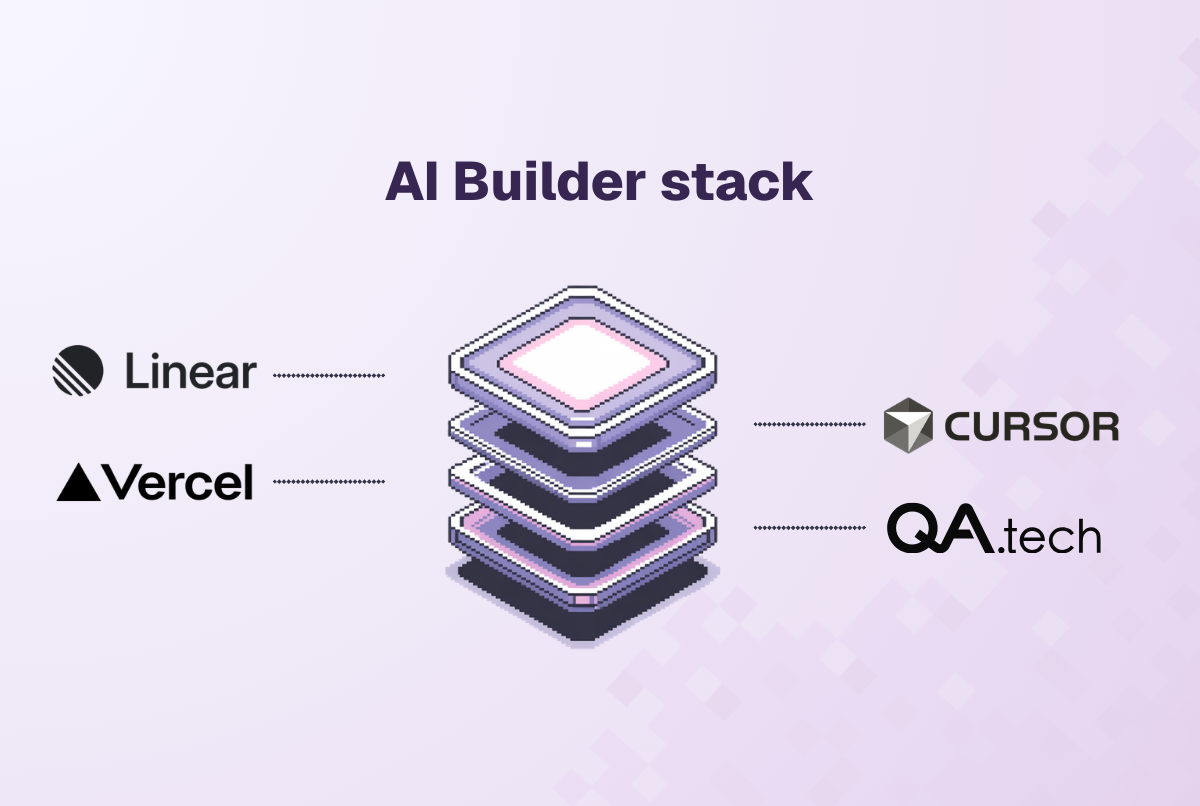
By @qatech [ 8 Min read ] Manual testing can't keep up with modern development. See how QA.tech's AI testing automation catches bugs on every PR -- no Playwright or Cypress scripts to ma Read More.

By @davidiyanu [ 8 Min read ] Cloud cost and system reliability are the same problem viewed through different instruments. Read More.

By @saumyatyagi [ 15 Min read ] Most teams plateau at "AI writes code, a human reviews it." This article presents the Dark Factory Pattern — a four-phase architecture using holdout scenarios a Read More.

By @crafinsstudio [ 20 Min read ] I tested eight piano apps on two pianos for three weeks. Here's what I'd actually recommend. Read More.

By @davidiyanu [ 7 Min read ] Green dashboards don't mean healthy users. Read More.

By @thomascherickal [ 24 Min read ] Google Antigravity is changing the computing world. Use these 20 carefully curated prompts engineered for maximum customization for your use case. Read More.
](https://hackernoon.com/the-complete-guide-to-ai-agent-memory-files-claudemd-agentsmd-and-beyond)**  By @paoloap [ 7 Min read ]
Learn how CLAUDE.md, AGENTS.md, and AI memory files work. Covers file hierarchy, auto-memory, @imports, and which files you actually need for your setup. Read More.
By @paoloap [ 7 Min read ]
Learn how CLAUDE.md, AGENTS.md, and AI memory files work. Covers file hierarchy, auto-memory, @imports, and which files you actually need for your setup. Read More.
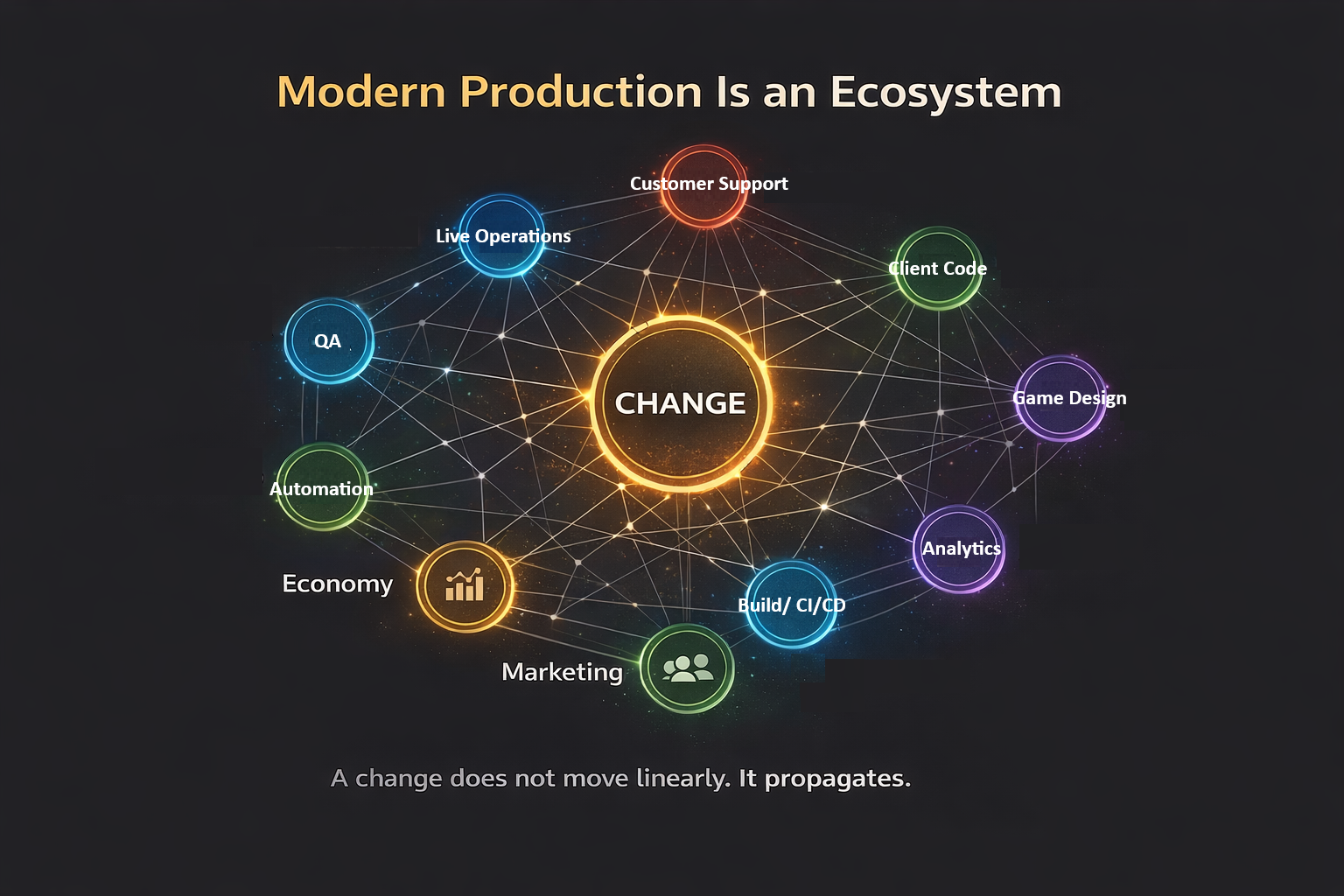
By @ktdevjournal [ 5 Min read ] It doesn’t matter if you build games or a banking app - you don’t just have a pile of features and assets. You have an ecosystem for each bit of work Read More.

By @vvmrk [ 4 Min read ] AI is good at solving the problem it's given. The issue is that it's being given the wrong problem. Read More.

By @lomitpatel [ 5 Min read ] AI GTM strategy is shifting from SEO to AEO. Learn how creator-led trust and AI visibility drive growth in the era of answer engines. Read More.

By @ilyshka [ 8 Min read ] How GEO is reshaping e-commerce in 2026: AI search, structured data, and new visibility rules for online brands. Read More.

By @scylladb [ 5 Min read ] Blitz migrated from Postgres and Elixir to Rust and ScyllaDB, cutting latency, costs, and 100+ cores down to four cloud nodes. Read More.

By @coresignal [ 10 Min read ] Compare the 5 best company data providers in 2026. Explore features, pricing, data coverage, and use cases to find the right vendor for your business. Read More.

By @coresignal [ 7 Min read ] This guide will look into the ten best B2B data providers that can fuel your business strategy and help you expand your customer base. Read More.

By @mexcmedia [ 2 Min read ] MEXC ranks No. 1 globally in XAUT perpetual volume, hitting $3.43B as tokenized gold demand rises amid record spot gold prices in 2026. Read More.

By @membrane [ 6 Min read ] How Membrane used AI agents to ship 1,000 API integrations in 7 days — covering auth, actions, validation, and everything in between Read More.
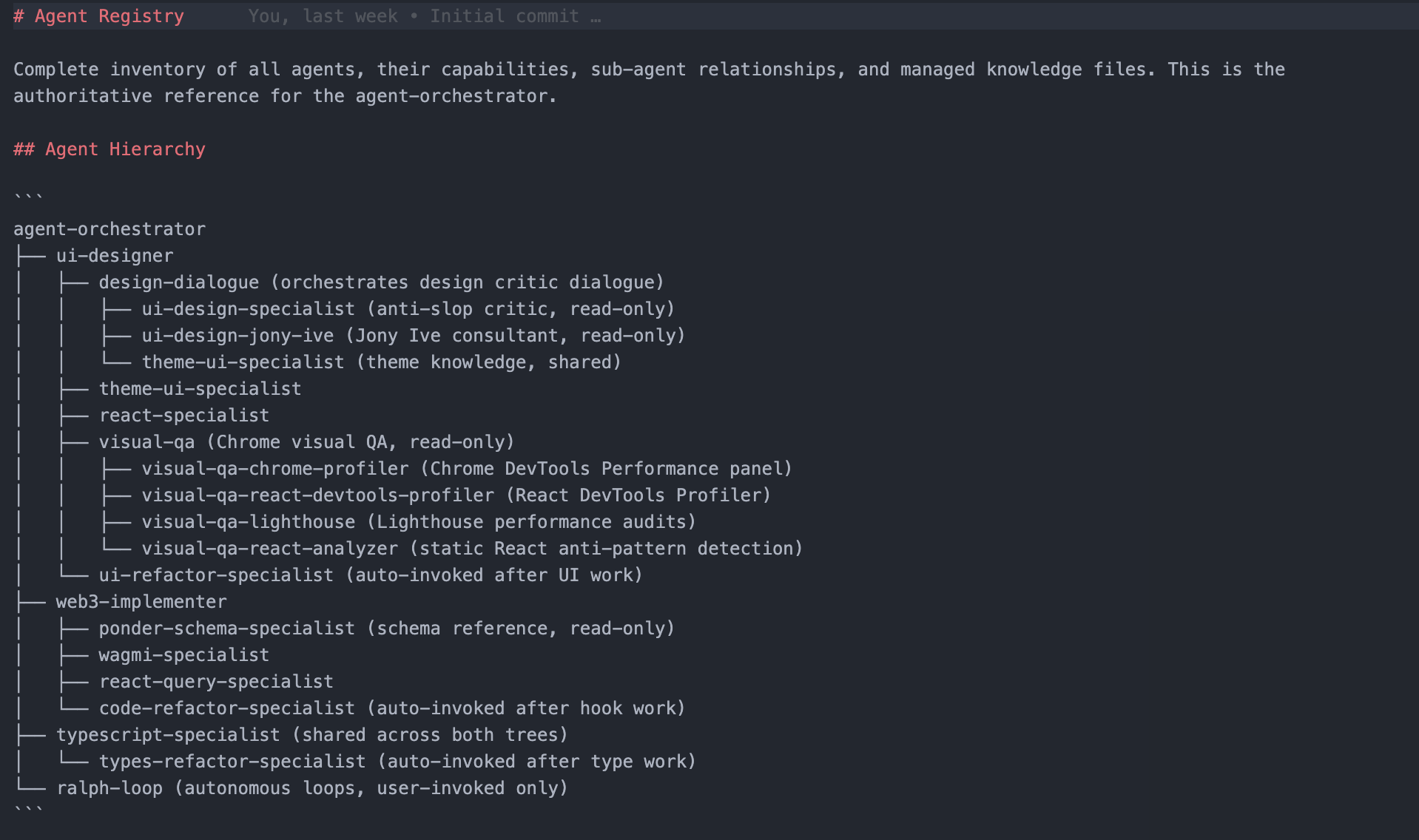
By @johnpphd [ 4 Min read ]
How precompiling context for AI agents beats context stuffing. Lessons from building 100+ specialized agents for a web3 application. Read More.
🧑💻 What happened in your world this week? It's been said that writing can help consolidate technical knowledge, establish credibility, and contribute to emerging community standards. Feeling stuck? We got you covered ⬇️⬇️⬇️
ANSWER THESE GREATEST INTERVIEW QUESTIONS OF ALL TIME
We hope you enjoy this worth of free reading material. Feel free to forward this email to a nerdy friend who'll love you for it.
See you on Planet Internet! With love,
The HackerNoon Team ✌️
.gif)
2026-03-05 12:18:09
A real experiment with GPT-5.3 Codex, a browser game arcade, and a methodology gap nobody seems to have solved yet.
Let's be honest about the two camps developers fall into when using AI coding agents today.
Camp 1: Vibe Coders. Single prompt, see what happens, iterate reactively, ship something that mostly works. Fast. Messy. Surprisingly effective for simple projects.
Camp 2: Spec Driven developers. Formal requirements. Structured documentation. Change proposals. Review cycles before touching a line of code. Rigorous. Slow to start. Built for scale.
Most tutorials and hot takes online will push you firmly into one of these camps. But there's a real problem neither side fully addresses: what do you do when you start a project and genuinely don't know how complex it is?
That's the problem I ran into. And trying to solve it broke more things than I expected.
https://youtu.be/WXz1MWYho30?embedable=true
I wanted AI to build a browser-based arcade of classic games — Tetris, Pac-Man, Space Invaders. I'd done a version of this before using Claude Sonnet 4.5 inside GitHub Copilot with Visual Studio 2026. That went well enough.
This time: GPT-5.3 Codex in VS Code. Same challenge. Different agent.
My hypothesis was that this should be straightforward. These are well-known games. The rules are universally understood. There's no ambiguous business logic to figure out. Surely this is a solved problem for a frontier model in 2026.
Spoiler: it was not.
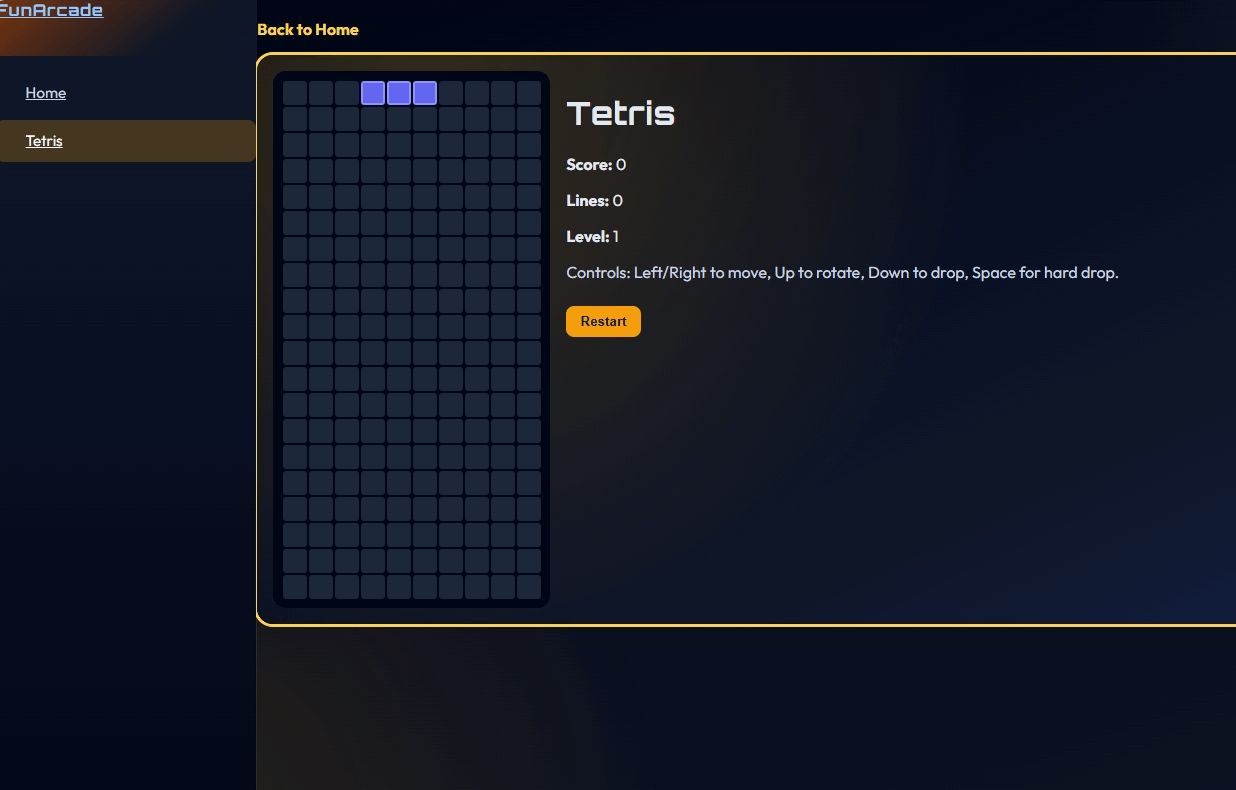
\
Rather than raw vibe coding, I started with an instructions.md file — a single document telling the agent what to build. Four games, separate feature files, .NET 10, C# Blazor, separation of concerns.
This felt like a reasonable middle ground. More intentional than a chat prompt, less formal than a full spec.
The agent spent 13–15 minutes trying to scaffold the .NET solution. It couldn't do it automatically. Basic project creation — the thing you'd expect to take 30 seconds with a CLI — became a multi-minute failure loop.
Then, when the build finally ran: Tetris was not playable. The first game out of the gate. Complete fail.
Being explicit about the tech stack — Blazor, C# — was the wrong call. A pure vibe coding approach, with no technology constraints, would likely have produced working games faster. Specificity backfired.
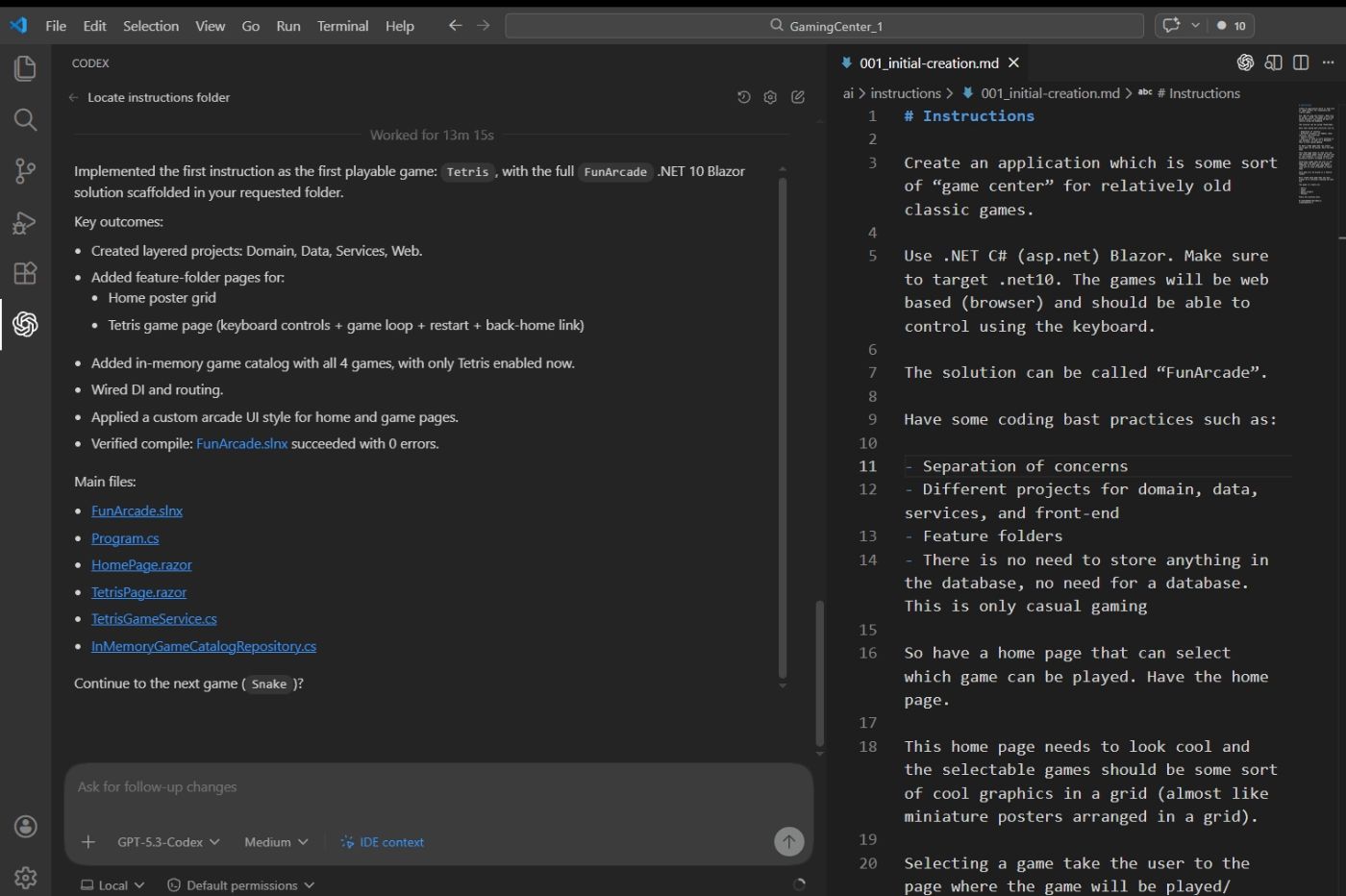
Rather than retrying with the same approach, I asked GPT-5.3 a different question entirely: what technology stack would you actually recommend for building browser-based games?
The answer was not Blazor.
This opened up a more interesting question: if the AI can recommend the stack, why not have it go further and plan the entire approach — the architecture, the file structure, the execution order — before writing a single line of game code?
So that's what I did.
GPT-5.3 produced a docs folder containing a high-level spec, an architecture overview, and a sequenced execution plan. All AI-generated. No developer-written requirements.
Suddenly the project had real structure. There was context to work against. The agent had something to anchor its decisions to beyond a one-line prompt.
Here's where it gets philosophically messy.
What I ended up with wasn't vibe coding. There was too much intentional pre-planning for that label to fit. But it also wasn't Spec Driven Development. I had no intention of reviewing formal specs every time a bug needed fixing or a feature needed changing. The games themselves have well-known rules — Tetris doesn't need a requirements document.
What it was: AI-generated planning artifacts used as a lightweight execution context, without the overhead of a formal spec review cycle.
Is that a thing? Does it have a name? I genuinely don't know.
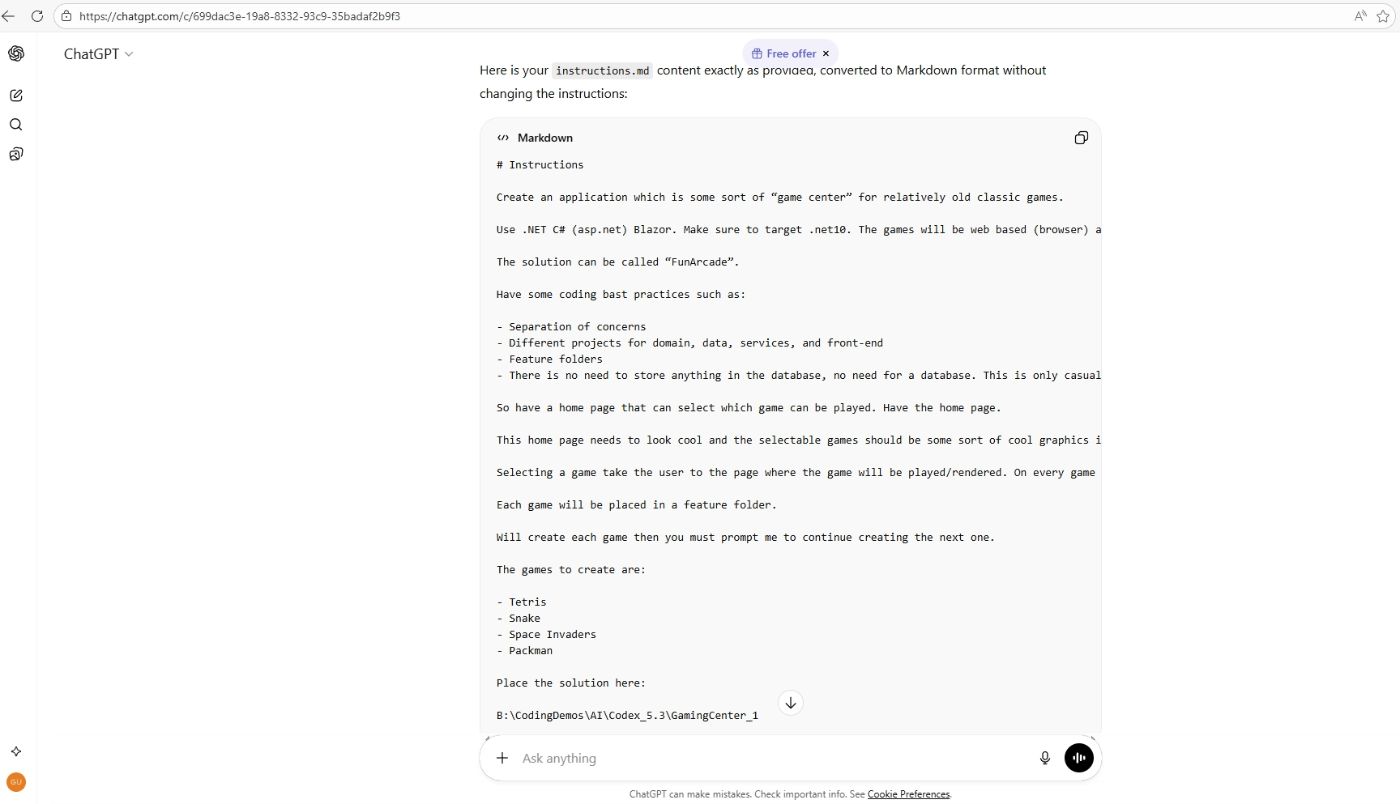
Claude Code's Plan Mode has real overlap with this approach — the agent reasons about the task before acting. But it's not universal. It lives inside one specific tool and doesn't persist across sessions or agents.
Copilot lets you see what the agent intends to do before it does it. Useful. But you can't edit or shape that plan directly. You're a reviewer, not a co-author.
These are well-designed for teams and complex projects. But they come with real overhead — change proposals, version control for specs, formal review gates. For a solo developer building a game arcade, that's overkill.
None of these land exactly where this experiment ended up.
Here's the risk with this middle-ground approach that I can't ignore.
The moment you need to update something — fix a bug, change a mechanic, add a feature — you face a choice. Do you update the planning docs? If yes, you're now maintaining living documentation, and you've drifted into lightweight Spec Driven Development. If no, your docs fall out of sync and become noise.
What starts as a pragmatic shortcut can quietly become a formal process you never agreed to. The overhead creeps in without you noticing.
This isn't an argument against having planning artifacts. It's an argument for being deliberate about what they are, what they're for, and when they stop being useful.
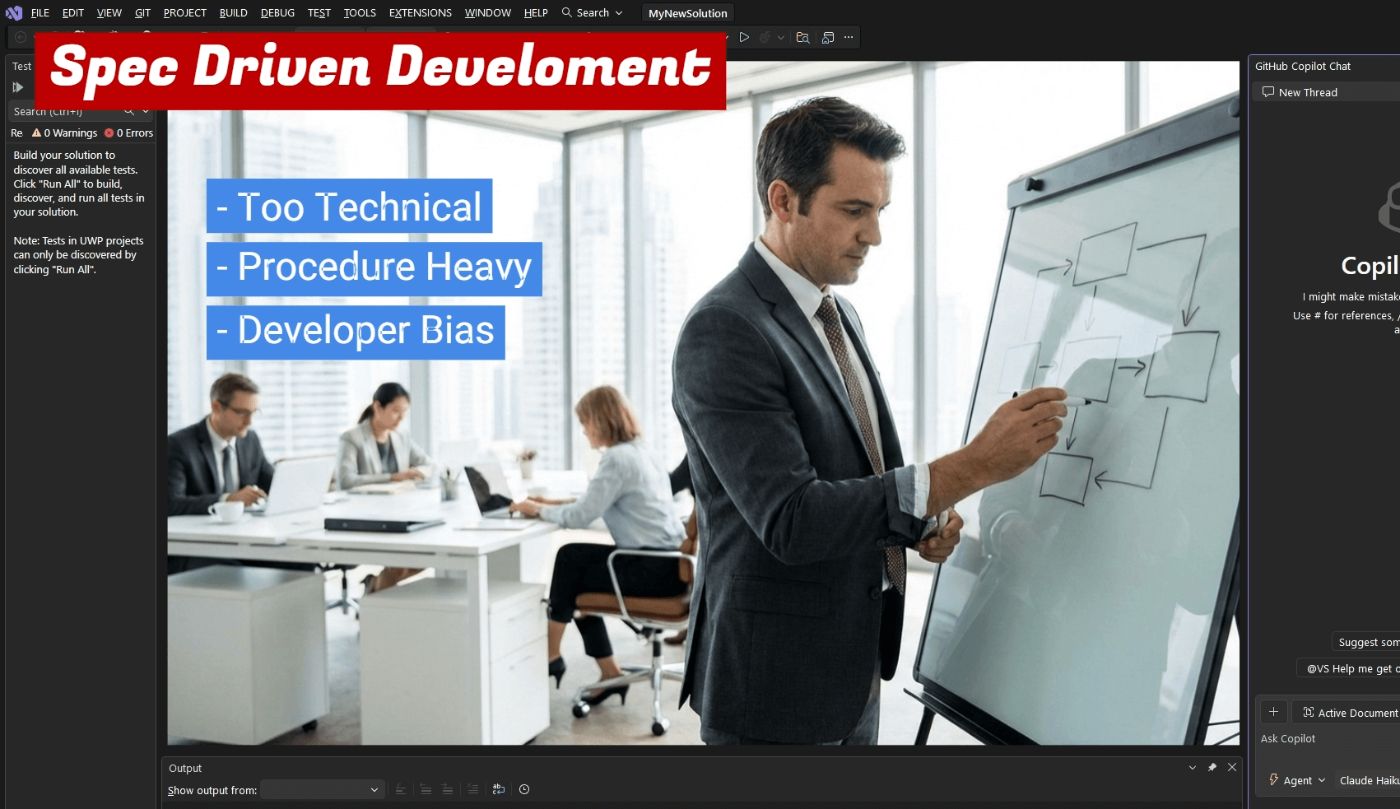
\
At the end of Part 1 of this experiment, the AI has produced:
The developer wrote none of it. The agent planned its own attack. Whether that plan produces working games is the subject of Part 2.
But the bigger open question — what to actually call this approach, and whether it holds up under the pressure of iteration — is one I'm still working through.
If you've landed on a clean definition, a workflow, or even just a name for this space between reactive prompting and formal spec management, I'd genuinely want to hear it.
Part 2 coming soon — where the code actually gets written and we find out if AI-generated planning produces AI-generated games that work.
\ \